Learn to make income with a podcast
Join the 5-day training
Profitable Podcast Bootcamp
Come Hang Out!
Learn How to Consistently
Make Income With a Podcast
For Faith-Led Entrepreneurs
Join 5-Day Profitable Podcast Bootcamp!
Podcast Launch Checklist
Steps to start and launch a podcast from start to finish
Should You
Start a Podcast?
TAKE THE QUIZ
AND FIND OUT
STEP BY STEP PLAN TO START YOUR ONLINE BUSINESS
Complete Business Blueprint
Is My Group Coaching Program Right For You?
Choose the option below that best describes you!
Have a question?
Ask Stef a question about her resources
or program!
Will podcasting make you money?
Play around with my Profitability Calculator!
Meet Podcast to Profit Alumni
Students and graduates who are profiting from their podcasts
from psalm chapter 18
Spiritual Battle Plan
defeat the enemy, strongholds and spiritual warfare
Mamas,
Get ready mama bear. I brought in one of my favorite clients and humans today, Ashton Fuhs, who is going to blow your mind with these simple patient parenting secrets. Ashton is the creator of The Rooted Mom System, a biblical parenting approach to patient parenting paired with YEARS in child development. If you’re ready to have well-behaved kids that listen, grab a notebook and hide in the closet… it’s TIME.
Ashton is extremely passionate about the approach of biblical parenting because she knows we are all searching for a way to raise well-behaved, empowered, decision-making, and courageous kids who love the Lord and have His word written on their hearts.
She wanted to end the power struggles and show us how we can flourish our relationships as a family and a team.
And, she’s done it.
I pray this blesses you!



FULL EPISODE TRANSCRIPTION:
(00:01)
Hey mama. Welcome to episode 108 of the show. And I’m so excited because we are going to be talking about biblical parenting today and how in the heck to have well behaved children that actually listen without screaming at them, hiding in the closet, stuffing your face with Doritos, running outside to hide in your car or insert any of the other awesome parenting styles that I’ve tried. But for real though, asking for a friend. So I brought on my client, but also now my teacher, because I am taking her course and we’re drilling her on her new program with a Rooted Mom’s system.
(00:43)
This system is incredible. It takes us through language. It takes us through how to discipline properly, how to reframe questions back so that our children feel heard because truly at the center of it all, they are just little egotistical maniacs, sorry, not sorry. And they want to be seen and heard. And Ashton teaches how in the heck we can do that as parents so that we’re not pulling our hair out and they’re actually listening and behaving what an incredible thing.
(01:09)
So let me introduce you to Ashton Fuhs. She is a mom of two, a coach’s wife, a child development expert, a certified parent educator in redirecting children’s behavior. And no matter what career she leaps into, she’s an Enneagram seven, by the way, God always puts her back with children and parents. Now working as a part-time preschool teacher and also coaching parents, specifically mamas on raising well behaved and empowered children because her passion project has been directed towards faith-based families and using the gifts of parenting that God has given to us.
(01:47)
Ashton is incredible. And like I said, when she came to me with this idea of a course, she had all this insanely amazing content that I knew would transform mama’s lives. Really? Cause I needed it. I helped her tangibly plug it all in, get it all down, organize it, execute it, get it put together, launched in an incredible way. We used a great launch strategy for Ashton and now Rooted Mom’s system is out in the world. But I wanted to bring you some of the concepts from the course so that you could start implementing them ASAP. You’re going to love this. Get ready, get your notebook out. Now let’s dig in.
(02:35)
Hey everybody, I’m super pumped. You heard all about the incredible Ashton in the intro, but I’ve got her sitting here with me. She is one of my most beloved clients in the entire world. I love meeting with her every single week and we have put together something super exciting. Obviously it’s her brain. I was just like, do this, do this, do this. I’m so excited for you guys to hear from Ashton today. Cause she’s going to teach us all about biblical parenting and how we’re going to be able to have empowered well-behaved kids. Lord knows. Lord knows. We need that.
(04:11)
Welcome to the show, Ashton. I’m so excited. Oh, we are so excited. So start with who’s Ashton, like tell us a little bit about you, a little bit about your background and then what you’re doing today. Sounds good. My background is crazy because I am an Enneagram seven and you have learned that I needed my Enneagram three in my life for show. I will save everyone by trying to pronounce my last name.
(04:37)
I am Ashton Fuhs. My background has always been trying to leave working with children, but God keeps placing me right back with children, no matter what I do. So I have been a stay at home mom. I have been a teacher. I am back at teaching now and it’s just been kind of a whirlwind, but my Enneagram seven seemed to have needed something new every year. But here I am now on the other side of it all educating parents with their children because you know me having worked with children, it’s so fun to be on this side now, working together.
(05:11)
So I am a mom of two. My husband is a basketball coach and he does sports all the time. So I’m a coach wife. I like to say. And yeah, I was the kindergarten teacher for six years and what’s kind of deemed me as a child expert by trade, child development expert. Then I chose to stay home with my children. So then I had three school years at home. But in that time I was a preschool screener and I’m not sure what people call it nationwide, but here in Minnesota we call it a preschool screener, which kind of just, I don’t even like to say the word test, but we benchmark, see where the kids are at during the preschool age.
(05:48)
And that was so fun for me because I got to work alongside the parents with their children. And then I tried to do daycare in my home for a year. Using the Rooted Mom’s system in daycare was so good, but I still like, it is just hard for me to love other people’s kids like my own and share my space. I’m now back, part-time teaching preschool and it is so much fun to see even this one year or this one month of school that we have had the Rooted Mom’s system language come into play and really work in these part-time preschool students.
(06:19)
So I am back with children in the classroom and like I said, I have two kids of my own. So it’s just kids all around me all of the time. That’s so amazing. And so your calling has always been kind of parenting in a way or like, and you have this like gift of not using like this forceful method of parenting and so you’re not reactive. And I think for me that was like the biggest aha moment of like, Oh, there’s another way to transform the way that my kids behave without like one, two, three, or like, I’m going to give you a spanking or you’re going to lose the technology.
(06:59)
It’s constantly like I’m threatening them to behave. And so as I started working with Ashton, you guys, my mindset started to open and my heart was going, Oh my gosh, is there a different way? And so together, Ashton had this idea of putting together this Rooted Mom’s system. Then I helped her piece everything together to create her signature product online course, which is now the Rooted Mom system. And I asked her to come teach us parts of the system because it is so transformational. It has been for her. I’ve begun practicing. And I’m almost done with the course. It’s been crazy. My mind is blown.
(07:33)
So we’ll go into tangible tactical stuff. Why did you decide to create the Rooted Mom’s system? So like I had said, I’ve always been with kids even, I think back to high school, I was always the babysitter. I was a nanny in college, so I just thought parenting would be easy for me. I literally thought I’ve got this. Like I understand kids. Well, you guys, as parents know, and me as a teacher, parents would come in and be like, Oh, good luck with this one. And so number one, they’re saying it in front of their kid, but number two, kids push their parents to the max. Like we are the ones that they push against if they are feeling down and out, it’s on the parents. So that relationship really, really gets hindered.
(08:13)
So for me to see my children then enter the world and push me to my limits. I was like, wait, I don’t have this mastered. And then I started like, okay, well if I can manage, that’s my biggest, I think strength in the classroom is my management. It’s just the fact of managing your children. And I don’t mean that in any way of there’s no control. There’s no, I mean, yes, there’s the authority, but the control is taken out and there are no power struggles. That’s the biggest thing was when I started to see my two-year-old daughter resist me in every way that she could to try to test me and break me.
(08:52)
I realized there is a language that the parent can meet the child with. And it just, the relationship that blossomed from it is trusting. It is respect. The child is seen and heard and it’s time. Like for the longest time it would be in Walmart and I’d be like face palm that mom, if she only just told her kid, thank you for sitting in the cart, instead of saying don’t climb out of the cart and I’m like, stop thinking that Ashton share it with the mom. So now after me realizing that this language works in my children too, and not just my classroom, it’s time to share it because children are so egocentric. They want everything about them.
(09:29)
If they want a toy, they’ll take it. And they’ll say that’s mine. And that’s just who they are. So when we can meet them at their level, a beautiful thing happens. Oh my God, Amen to that. And I think that’s the mind shift that we go through as parents, you had this great analogy in the course of the basketball coach. And that’s what really got me to see what you meant by this Rooted Mom’s system. It was what, what was it? It was like the coach ultimately. And I told my husband this and he’s like, but the coach does have control. I’m like, no, ultimately the coach has zero control over the players execution. Sure.
(10:05)
You can guide them, coach them, mentor them, which is what a parent does, but what the children then decide to do really has no, I don’t know the word, but the parent has zero control over what the kid actually does. Yes. And instead we are like the coach giving the direction, right. Giving the positive reinforcement. I think for me, that visualization was, you know, like the angry coach, like I had this angry varsity coach and he was a volleyball coach. He was so mean, and he would scream at us and make us run till we puked. And like, he was awful.
(10:37)
And I’ve had like the loving coaches, like in soccer or whatever other team I was on and the performance, while it may have been the same, it was a totally different experience. I always felt shame and fear. And like I had to perform, or I was going to be punished with him versus like I wanted to perform and do well for the coach that came from like this loving standpoint. That verse that you had mentioned that said, affirm, like if you are not affirmed, you can be crippled, you know, the verse better than me or something like that. I was like, Oh my gosh.
(11:10)
That was the mindset shift for me of coming from a place of affirming versus a place of punishing. So that’s what we’re going to teach, like trying to teach you guys today. You came up with this system, we’ve put together this online course, which is like now your signature offer, you are hoping that teachers can learn from this and real parents. Right. And learn to parent from a biblical perspective. Right.
(11:35)
So talk to us about, let’s kind of go into some of these examples, let’s start with like the rooted mindset of this whole program, because it starts with mindset. Right? Yeah. Talk to me about that a little bit. Like how can I frame my mindset as a parent so that I can now execute the things you’re to teach us about changing our language, changing our behavior, which ultimately transforms our kids’ behavior.
(12:00)
So the mindset is, it is so minuscule to talk about, but it is such a huge component overall because it’s your habits ultimately like for you to be disciplined. And when I talked about all the roots in the course, I was like, Oh my gosh, this all just comes full circle. Like here we talk about the kids discipline later, but ultimately your discipline upfront and changing your mindset. That’s the first piece. So I talk about having Jesus because I am not a patient person. If I do not start my day and invite Jesus into my day, that is to each their own. But I very highly emphasized that in my mindset because I noticed like the days that I just come home and I’m exhausted and I’m extra mean to my kids.
(12:43)
I’m like, I didn’t even stop to put Jesus into my day to day. Like He’s the one that can change my mindset. The other huge, huge, huge component in mindset is like I said, breaking our habits. So we right now have habits of reacting. Like you said, we are changing our mindset to be proactive. So my huge component in the mindset course, or the part of the course is to ignore. And that is so crazy for parents to be like, what’s like my child jumping on the couch, I’m going to ignore that. Yes you are. Because unless there’s immediate danger, like you’re not going to give that egocentric child who wants your attention, any attention for the things that you don’t like to see.
(13:21)
So to break that habit and to really, really drill it into your own brain and biting your tongue when you want to react. If you think about it, the kids wake up in the morning and they’re told, get up, let’s go eat breakfast. Think of all the commands that they are given attention for. I mean, not really, but like that’s what they hear. And then they’re at school and they’re told to sit, listen, walk, be quiet. So for you, yes. And then come home and then it’s time for bed. I mean, yes, there’s loving moments in there, but we have to change our mindset to be like, okay, we’re just going to slow down.
(13:54)
And I use a verse in James for that about, be slow to speak, quick to listen. And it’s just really you sitting back. So I have exercises in there of just admiring your children, just watching them play. If they start to fight over a toy, you’re going to ignore that. And I teach simple things that you can redirect the children with, but it’s a lot of ignoring because it’s you breaking your habit. And that’s the biggest piece of mindset is just, it’s focusing on you just sit back, enjoy a warm cup of coffee and just play with your children for 15 minutes.
(14:26)
And I have to be honest, this has been the hardest thing for me. Like I feel like I have the, some of the other components already, but the ignoring the ignoring. So this morning to give you an example. Everybody’s waking up late, Hey, we’ve got like 20 minutes and that is my fault. I was up. But I was like dawdling and then I’m like, Oh my gosh. You know? And so enjoying time by yourself, it was great. I was inviting Jesus into my life. And now my children. It’s about 20 minutes. We wake up, miles is fine. He’s going, he’s sitting, he’s eating and gets up. And that’s the three-year-old right. He’s almost three. And he gets up and I get his clothes and I’m like, okay, we’re going to get dressed.
(15:06)
I started to put his clothes on and he goes, no, I don’t want that one. And he takes the clothes and he throws them. And so I’m like, okay, what would Ashton do? What would Ashton do? We don’t have any time to ignore you. So like here was my struggle. Like, okay, do I ignore you? Or do I like, my normal reaction was like, Landon, we’re getting dressed now. Right. And so I was like, okay, I’m gonna ignore this for a minute. I’ve got five minutes here of wiggle. So I was like, okay, son, I’m going to go get your breakfast ready? So I just walked away from him and then he’s crying.
(15:40)
You ready to get dressed? Thank you for getting dressed. That was using Ashton. So I go over to him and I am ready to get him dressed. What does he do? Boom. Throws the clothes again. Okay. What am I gonna do here? What do I do here? Okay. We still have two more minutes. So I just didn’t say anything. Walked away. Got his breakfast ready. I said, Landon, let’s sit down and eat. No, I’m not going to eat. Okay. Sounds good son. So I go start loading the car and he’s like, Oh, I want to eat. And so he keeps changing his mind. Right. And so finally, Ashton, I lost it.
(16:11)
I said, son, you’re losing a peg. We have this peg system, which you’ll have to tell me if that’s bad or good. So I’m putting the peg down. So then he’s screaming I lost my peg, put my peg back. I’m like, well, son, we need to get dressed. I don’t want to get dressed. Okay. You’re losing another peg. Put the peg down one more time. And then he’s still screaming at me and not doing anything. I said, if you don’t get up there and eat by the time it comes through, you’re getting a spanking too. And I’m looking at him like the fear of the Lord. And he goes and climbs up to his chair and starts eating his pancake.
(16:43)
I’m like, Oh, look, I failed at this system this morning. So hearing that live example to help me, what would you have done? And how could we have maybe, shifted that situation? I still love the ending because not that it’s about winning, but you won. I mean, ultimately like it came to the discipline point and that’s okay. Like the discipline part of it will come because they will learn. I have an example of this in the course of it happened right before this part of my recording in the course, I’m like, Oh, thank you, God. Like that example with my son anyway.
(17:19)
So it was the simplest thing of our family was going for a walk. So very similar. But my son was adamant that he wanted to walk the dog, but it was my daughter’s turn. And we explained that. I said, you have two choices. You can sit in the stroller or we can go inside. And he just sat there and he pouted and he didn’t make a choice. I said, again, you can sit in the stroller or you can go inside. So I think giving them the choice because ultimately I had to cave and I had to discipline him because he still chose to not answer me.
(17:46)
And I said, okay, on the last one, I finally said, if you don’t answer me, you’re making the choice to go inside. So the stroller, or should we go inside? He still didn’t answer me. So I’m like ding. And I really wanted to go for a walk, but I had to grab him and march inside. And I said, I’m sorry that you made that choice. You made the choice to come inside. And ultimately it was all on their shoulders, which is a cause. Then we don’t take it as personal because I think that’s the hardest part is when our children are defying against us, we take it so personal, which then creates that power struggle.
(18:16)
Especially when there’s a timeline, like the mornings of everything, like there’s extra stress. Like we have to get out the door at a certain time. Part of me as like an old-school person. Like why do we have to be at a place at a certain time? I know you’re a seven. You’re like, can we just show up when we feel like it and see I’m a three. And so I’m getting like, so panicky that we’re going to be two minutes late to frickin kindergarten, which is like, is that really?
(18:42)
No, it’s still, it’s good at teaching them that management too. So in your situation, I would have tried choices. I know as much as you can prepare for them mornings the night before, like my daughter would go to her closet and I let her pick out. She’s so adamant at dressing herself. So choices works very well for her because she would wear pattern on pattern, on pattern. And so I’m like, okay, I will let you choose this legging or this legging. And so giving them that choice of, there’s still both choices that you want in the end. Um, but I think if Landon would have seen two choices, he would have been able to be like, okay, I got this.
(19:15)
He would have had more control over his day, which is what the egocentric mind wants is that control. And that’s what we’re trying to get rid of because we want that control too, which is going to like people can’t see my hands, but if you’re standing here and somebody who’s leaning against you, the automatic thing that happens is pushing against each other because otherwise you fall over. So it’s, you know, that’s what I like to visualize for the power struggle is if you push, they’re going to push right back. So giving choices lets their little egocentric minds decide so much.
(19:45)
Then for breakfast, like, would you like this or would you like this to get to the car now? Would you like to walk? Or would you like to skip? And ultimately I say ultimately a lot, but it gets them to the car, but they’re getting to choose how to get to the car. I like that. And I think maybe that’s the problem with Landon because Miles doesn’t care. He’s like dress me. Like he never cared what he wore. And so it’s like this mindset shift for me of like, why does this kid care what I’m putting on his body? Like, is this really serious? And like, I’m not coming from his perspective of that egocentrism.
(20:18)
How on earth do you say that? So, yes. I feel you. So choices. But you had the right mindset. So we were focusing on mindset. You had the right mindset. And that’s what I mean by the Rooted system, the Rooted Mom’s system comes together because when you’ll have the right mindset and then you had those language pieces, which is where the choices comes from, that’s the language piece. When those go with your mindset, your mindset is staying calm. You pull in the language piece and you give him those choices. You affirm him for doing what you like to see. Thank you, Landon, for putting on your shirt.
(20:48)
They still might try to be defiant and like take their shirt off because you said, thank you for putting on your shirt, but that’s where you just ignore and you continue on and you keep affirming and keep giving choices. I try to, because Miles was sitting, the older one was sitting eating perfectly. And I was like, Miles, thank you so much for sitting and eating. You’re doing such a great job. I really appreciate it. Landon did not care. He did not care. And I’m like, Oh, what do I do now? What do I do now? So let’s talk about language a little bit deeper. You have a kid running, just running in the store, going crazy in this system.
(21:26)
How would you handle that from a language perspective? Because obviously we want to be like, stop running, but you know, the people shopping are staring at me, like, get your kids together. You know, how do we change our language that we compare mindset with now the actual, tangible language to try to reinforce different behavior? Well, especially in public, I probably have my kids way too scared, really? Because I’m very blunt about like, you could get captured. So we were having this last weekend. We have this balcony at the cabin that’s like a five story drop.
(22:07)
The cabins built on a hill and my son’s leaning over it. When we were out on the swing, I thought of you in the course. And I said, if you lean over that railing and you fall, you could die Miles. I think I wouldn’t have said that so bluntly, unless I had heard you say, you know, running with a fork, why do we not do that? Then his face transformed for a second. He was all, Oh, okay. I am not leaning over the fence again. Because their egocentric, like, they need to hear what could happen to them. Like we can’t just say be careful, be careful, be careful. Can’t say it’s not safe to run with the fork. Well, why not?
(22:41)
Like they don’t realize what could happen. And they live in a very G-rated world and I’m okay with making it R rated really, because it is a very scary R-rated world. And you can’t even go to your small town Walmart anymore, but yeah, with the child running and like just the fact of keeping your cool and being respectful. We talk about commands and more specifically direct commands. I mean, you could pull the child aside and just give them the explanation of like, this is why it’s not safe. If you cut off a lady that can not walk very well.
(23:14)
I mean, you could talk about those types of things, but giving a direct command, like show me how to hold onto my cart or show me how, like show me or tell me which I have as principals to put around your living room as reminders. Because those were key for me. Like, show me how you walk with your scissors. Like, that’s a big thing for my son right now, who wants to do art at the table. And he goes and grabs the scissors and I say show me how you hold scissors safely. And then he shows me and I’m like, thank you for showing me.
(23:42)
Running in the grocery store, show me how you stay my mom’s side. Show me how you help or tell me why we shouldn’t run, show me and tell me’s are direct. But they have to be descriptive. Like that’s the directness of it. Not show me how we walk safe by mom’s side or tell me why we shouldn’t run, but really just bringing it into the child as to why they shouldn’t, not what could happen to everybody else. Cause like, does he really care if mom’s mad? Does he really care if he cuts off the old lady? I guess maybe not, but to make it as detailed for them.
(24:26)
You could explain why, like when we get to the car, but I think in the situation, I love your feedback of the show me, tell me, because I hadn’t thought of that. I had thought of your example of waiting until they stop running and saying thank you for walking. Yeah. But then from this morning, I’m like, well that didn’t work. Thank you for sitting and eating Miles, but Landon didn’t care at all. So I’m like, Oh, maybe I should have tried along with the choices. Landon, show me how we eat breakfast or can we show daddy how we eat breakfast on a video?
(24:59)
Do you want to eat like an alligator or do you, I mean, you can, you can honestly pick and choose all of those language pieces. Like maybe affirmations. Thank you, Miles for sitting didn’t work for Landon today, but could totally click a different day. Like he was not going to let mom, you know, like they push us until they see when we can break. So it can totally work for him tomorrow. But to have that other language piece to pull from, you know, like the choices, are you gonna eat like an alligator or are you going to eat like a mouse?
(25:25)
So then let’s talk about discipline. So you have Rooted discipline as the next category that you teach. Talk to me about that because language is huge. Mindset is huge, but like what about when we get to the point and when do we know, when is discipline necessary versus let me keep ignoring, let me keep toying with this other stuff before I get to that point. Like, what’s your feedback? So without going into too much of how I discipline, because that’s all in the course and I follow what God says straight from the Bible, there are so many different perspectives on discipline.
(26:05)
But I say like, if it’s an immediate danger, then you stop them in their tracks and you make it a serious situation and you explain what could happen. That’s the discipline of it. Then it creates that trigger. So next time let’s say they were leaning on a five story balcony. Then the next time they’ll remember, okay, the discipline of like, you didn’t have to discipline anymore. That discipline was already ingrained in them. So immediate danger is obviously a call for like, not like punishment discipline, because we talk about how discipline is not punishment.
(26:33)
If you think about it, when you’re trying to break a habit, like it’s discipline, like when you’re trying to eat healthy and diet, it’s discipline. So discipline is basically just instilling those new habits in the child. But instead of just pulling from the language pieces all the time, I mean, if they like my son, if he didn’t want to get in the stroller and I gave him choices, I gave him other things to choose from as language pieces he chose to not answer or not move. It came to a discipline point.
(27:03)
Like when he realizes I’m waiting for mom to cave and not that you’re trying to keep control or keep the power struggle going by you disciplining because it’s not you disciplining. Like I said, it was my son making that choice. He disciplined himself. He chose to go in the house. So those moments where it’s like, there’s something has to give here, like it’s a choice that they’re making. And I use that a lot sit and think like, if they are not going to play nice, if they are not going to show me how to ask a friend for a toy instead of just take it.
(27:30)
In my daycare, I had kids that would just take a toy or think like it was their turn for the scooter. So instead of saying mine and just take it when they wanted, we got down, I got at their level and I said, this is how we could ask for it. Or this is how we could ask for a turn. Can I have that when you’re done? And so when they heard me say that, I say, can you ask your friend like that? And then they repeat it immediately. That’s disciplining a kid. Really? Like you’re making them follow through with, show me how you ask for a turn. Can I have that when you’re done? And then you praise them.
(28:02)
But if they choose not to keep doing that. Then they can sit and think and they can watch their friends play. Sit and think is not like a punishment. It is not a timeout. It’s just, they’re choosing to not play well. So they’re going to sit and think, they’re going to watch their friends play well, then when they’re ready, they can go and ask, can I have that when you’re done? Immediate danger is like my big, like halt in the tracks. That is something that you need to stop obviously immediately running in a parking lot. That’s another example. So not necessarily running in a store, but running in a parking lot.
(28:38)
Like I’ve heard somebody say, okay, there’ll be kids and they just let their kid keep running towards the car. To me, that’s an immediate danger. But then just slow down and tell them why not to again, make it wrap around their little egocentric brains of you could get hit by a car or the car could not see you, or you could get lost. Like really? You could run into a car. You wouldn’t know where mom is. Like that’s immediate danger and they don’t know they’re doing anything wrong. They’re outside. They’re like, I’m going to the car, but to slow them down and really make them think because that’s disciplining them.
(29:12)
Then next time they’re going to remember when I’m in a parking lot, we’re going to walk because this is what could happen. That all makes perfect sense. And I really liked your idea of discipline is not punishment because a lot of times, and that’s where I really had a struggle with our first child with spanking. I’m like, I will never spank. I mean, I was that mom and I think probably every first mother is. But my father-in-law introduced me to like biblical spanking. He was explaining like how it’s not out of anger and blah, blah, blah, blah. We with Miles, we have had to do it twice in his entire life, Ashton. Oh, a spanking. No, I’m good. I’m going to listen. I’m ready. And Landon has yet to be actually spanked.
(25:54)
So I’m thinking, okay, well might be about that time. And I had a hard time wrapping my mind around the fact that I’m hurting them or this is me punishing you. And when I had that mindset shift, then I was comfortable with a little bit more discipline, which was needed at the time. So if that helps any of you, that perspective shift and Ashton’s course goes really, really into discipline at a deep level. So you can figure out what might work best for you because everything’s different for each person. Right? Totally.
(30:22)
When you see the Facebook things of spanking being shared, I mean, it’s a kid laying across a grownup’s lap and they’re like pounding them. If my daughter gives me attitude, I told her, I said, I’m coming over there and I’m swatting your butt because we are breaking this habit of attitude. She doesn’t like giving me attitude, but right now it’s a habit. And so I said, okay, well this is what’s going to happen. I’m going to go over it. I’m going to pat your butt. And you’re going to remember, I don’t need to say that. But I was telling Stef about what the Bible says about the father who refuses to use the rod, hates his son.
(30:53)
And it’s, I mean, we joked because it’s like, it’s not like the father has a rod and like chasing down the shepherd, guiding the sheep. Like I think about the parallel path. And if your four year old leave the path a little bit, you have your staff, what a shepherd has to tap the sheep and get them back on the path. So really I think of it, like, I’m not ashamed to say that I spank and by spanking, we like, we swat, we give reminders, we do all the things and my kids, like they snap right back into place. Because if your four year old is leaving that path and is going this way, you guys can’t see me. But when they’re 17, when they’re 17, where are they going to be? They’re not on that parallel path.
(31:33)
What does that verse it’s like, teach them well now and they will return. Like if you can’t get leadership of your children at a young age. Yeah. Good luck. Good luck. Attain them, contain them. Yeah. Okay. So let’s move into the last component of the Rooted Mom’s system, which is being rooted in Christ. And I think this is, we talked a bit about it in mindset, but it’s so important. And so talk to me about that, Ashton, what does that mean? This is the ongoing piece that I want in our Facebook community group.
(32:04)
Obviously the moms and the dads and the grandpas and the grandmas and everybody who’s doing the Rooted Mom’s system will be sharing their pieces throughout their journey. But the ongoing piece is going to be rooted in Christ because I want the moms who maybe were not raised in the church and by the church. I mean, this is not about religion. Like this is about relationship. And with that piece, it’s the fact that our society is getting so far from having Jesus in the home. And that’s exactly what the devil wants.
(32:30)
So my passion besides having respectful families and parents who like their kids, not only love them. My passion is for Jesus to be in homes and for parents to know how to pray. I had a friend who said, I feel so silly praying with my kids. And it’s like we said, it was just, it’s not a habit for her. So yes, it feels awkward, praying out loud. And I said, in my course that my goal is to pray with my spouse. More like, it’s still awkward for me to pray out loud. I can pray with my kids all day. I’m like, don’t forget your prayers. And I’m like silently praying. I don’t know what is that? Why are we doing that?
(33:08)
I can see how mom, I mean, if you don’t have the habit of praying or having the right words, we don’t need the right words, but people think you need the right words. And it’s hard to pray with your kids. But I want this to be a safe place where moms can be like, we need Jesus. I would love to start my day with Jesus. Teach me how. And we talked about how it is a battlefield out there. The devil is lurking around every corner, trying to grab these vulnerable kids who do not have any seeds planted on their heart.
(33:34)
So the rooted in Christ is really just planting those seeds in the home, in your children, in yourself. Because if you are not rooted in Christ, then the devil is going to make you snap at your kids. The devil is going to make you not like your kids. The devil is going to make you crave bedtime so that you can have all the wine that you want, which hallelujah like wine Wednesday. That’s our thing around here. So I’m not, I’m not shaming the wine, but it’s more than just, I can’t wait for bedtime. I can’t wait for my glass of wine tonight. It’s the fact of, we need to love our kids.
(34:02)
We need to like our kids, we need to have Jesus. We need to love our spouse, we need all of it. Christ just really comes full circle of the whole Rooted Mom’s system, falling into place. Wow. This course is so needed. And I’m so excited that God put the call on your heart to take action and put it together because people like me and 99% of other mothers in the entire world need it. Like fiercely need it. So Ashton tell us right now how they can snag this course at the introductory offer. And so before the price goes up, I mean, you guys, this course is like insanely affordable.
(34:39)
The value I’ve already gotten. I have one module left. I would have paid three times more to learn what I’ve learned and to begin implementing. Plus you get the accountability group with other moms. So you can brainstorm. You can ask questions just like I did today and have Ashton help you out. Give you clarification in the group. It’s incredible. So Ashton, where can the listeners take advantage of the special one time, very limited time pricing.
(35:05)
You can go to Rooted Mom’s system, at Teachable.com and for the one week offer launch week, you can get it for $97. And I am so glad to hear you say that you would pay even more because I, as you know, like money is just a hard topic, but I was like, gosh, this really, really, really gives moms a foundation. And if I can learn this in my teaching years and really putting this into place, and now it’s just a habit, which I guess I have days where I fall very far from the Rooted Mom’s system, but it’s really just that habit for ever that you get to have in place of wherever you are.
(35:41)
It works with spouses too, by the way, like when you use these affirmations and stuff with everyone around you, like it’s just a beautiful thing. So that introductory price of $97 is an absolute steal for the rest of your life, having these habits in place. So that is no joke. This is no joke. Like I had pieces of this and I’m like, Oh, I’m like such a great mom. And I’m not saying I’m a bad mom, but I was, there were places that I could improve, but I didn’t know that I needed to improve in certain places. And once I heard Ashton’s message and dug into this course, everything really became super clear for me.
(36:15)
I knew I am called to parent that way. I am called to parent from a place of love and encouragement and affirming my kids and lifting them up. Instead of you’re not behaving, let me tear you down. I just knew that this was the right fit for me. And now it’s just practicing the core and it’s not hard. It’s simple. It’s just that you don’t know it. And so Ashton really gives you the clear, tangible instead of this, do this. And we’re going to take it step by step to get you through the whole system. So I’m grateful. The listeners are going to be grateful. Mamas go take advantage of that course. I’m telling you it will be worth it. And, um, we’re excited.
(36:52)
Thank you, Ashton, for sharing your incredible knowledge with us. Thank you for executing my brain. It was all mumbled up there and she took it and she just laid it out. That’s like what I love to do. I’m like give me all your jumbled ideas and let me like lay them out for you. I would have done it on Microsoft word. Just like typed out in a day if I didn’t have Stef. So well, thank you. It’s been so much fun working with you. Where else can people find you Ashton? Yes. So I am on Instagram. I am rooted.mom. My personal account is actually, if you want to follow me there too, anyone is welcomed into the Rooted Mom’s system Facebook group.
(37:40)
You can message me if you can’t find it, it should be able to be typed it in the Rooted Mom’s system. It came right out. Okay. And then I did just start a page because that’s kind of going to be my Instagram on Facebook is going to be rooted moms because I want it to be all of us in one place. Plus on Facebook too, if you want to find me and there’s more to come, I mean, I’m going to be a certified parent educator and lots more amazing things happening on rooted mom. So awesome. Me too. Thanks so much, mama. Thanks.
(38:11)
How amazing was that? I hope that you took away such incredible nuggets and if you want to dig into the Rooted Mom’s system, Ashton has set up an amazing offer for all of my community. And all you have to do is head over to rootedmomssystem.teachable.com, and click on the Rooted Mom’s system course. And if you enroll in the course, use the promo code Lola and save 50 bucks. You can get in for her pre-launch pricing of only $97. You guys, how are you? I’m like no brainer. I tried to tell her I’m like girlfriend, people will pay $500 for this course.
(38:52)
She’s like, no, I want to help a million mamas change the way that they parent. And I thought that was so amazing. And so she’s extended that pre-order pricing to all of you guys. So again, your code is going to be Lola at checkout. You’re welcome. And sister, if you need help mapping out your online course, just like this holler at me, let’s set up some coaching. Let’s get your product out into the world. That is my jam. That is one of my zones of genius is taking all of your ideas and helping you put it into tangible tactical action steps to get you over the hump of how to remove the overwhelm for you.
(39:33)
To give you all of the tactical tools and tips that you need to execute. Because I know that accountability piece is so huge when it comes to putting a product into the world. Now, I want to just leave you with a prayer. I pray over you now, mama, that you found the nugget you needed in that interview to go and parent with love grace and patience that you remind yourself, you’re a little human just wants to be seen and heard.
(39:59)
I pray that God fills you every single morning and every single day and every single evening with renewed patience and kindness and understanding in your heart for your little human, who is looking to you for encouragement and praise and love and ultimately so that they can be seen and heard. I pray that you head into the world with grace and courage and that you impact every single person that you meet today and inspire them in some way, shape or form by gifting your mission and message out into the world. And I pray that God gives you the courage and the words and the provision to do so. Giving you a huge virtual hug as always, love and light, Stef.
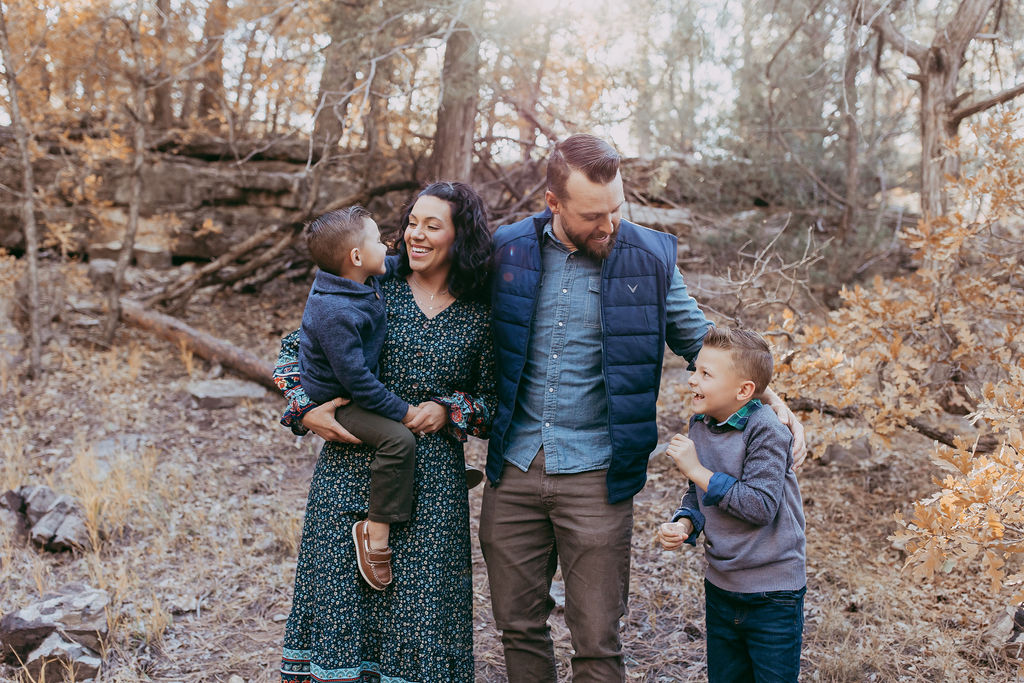
Learn How to Consistently
Make Income With a Podcast
For Faith-Led Entrepreneurs
Profitable Podcast Bootcamp
READ MORE
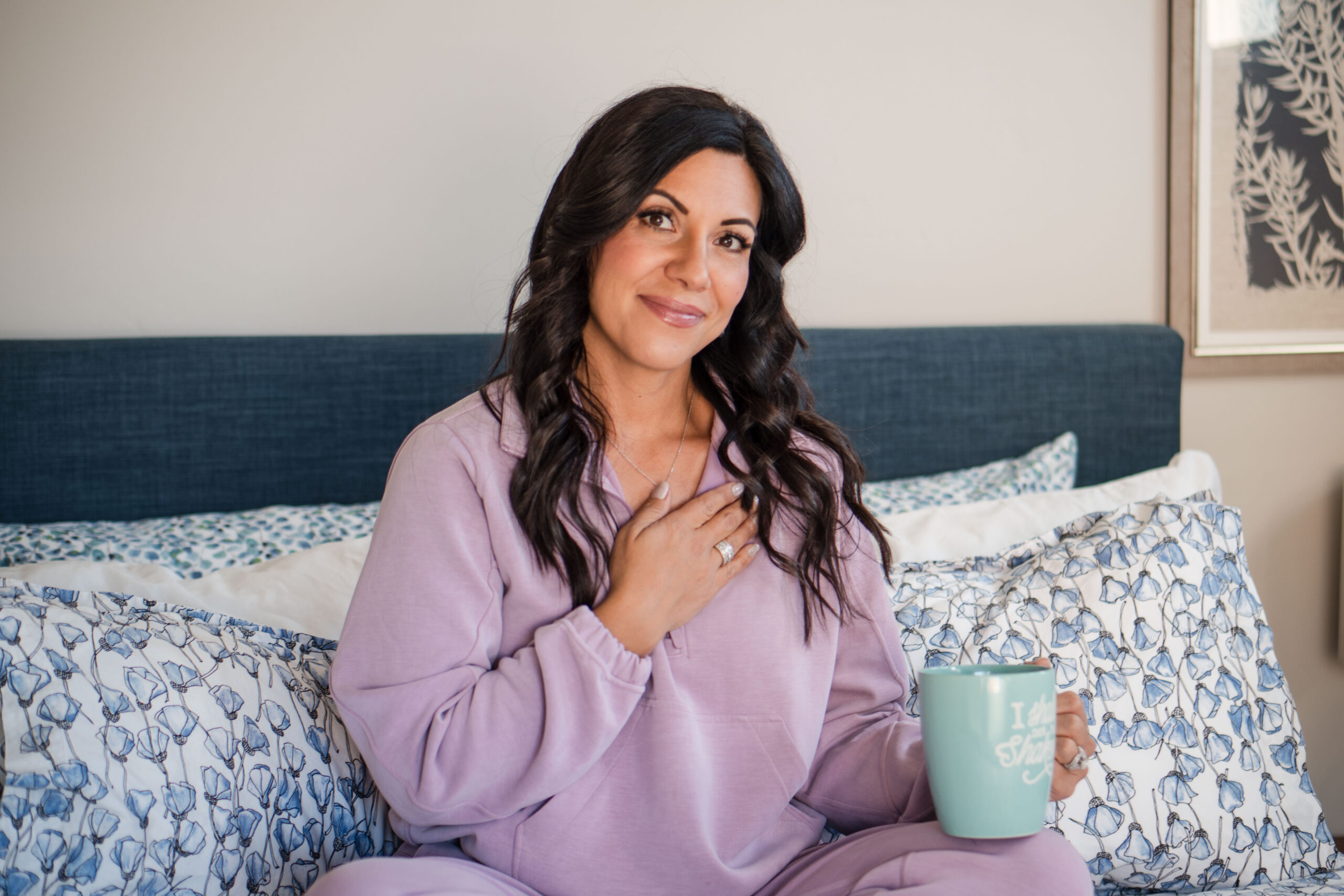
Here are 6 ways I’m scaling my business to 7-figures God’s way and not the world’s way, all without social media.

READ MORE
It’s been a hot minute since we’ve had a conversation around whether podcasting is right for you. A few people recently asked me, “How do I know for sure that podcasting is right for me or my business model?” That’s what I will discuss with you today.

READ MORE
As a 7-figure Christian business owner, Stef shares biblical business advice straight from the book of Proverbs.
READ MORE

This post is for my MLM Girlies or anyone marketing a personal brand or physical product. It’s a live coaching session with one of my students about having a personal brand versus product branding, and what this might look like for you.

READ MORE
Join me as I chat with Podcast to Profit graduate, Monica Topete, on going from burnout to a top 2% podcast and hundreds of organic leads.

READ MORE
Have you wondered how to use the Bible in your business? What if I told you the best strategy isn’t another mastermind, launching another thing, or listening to another podcast? The best strategy comes from knowing how to use the Bible.
READ MORE

Join Stef as she discusses five ways you can hear from God in your business. The Holy Spirit will lead you if you are paying attention!

READ MORE
If you’ve ever wondered how to go from zero subscribers to millions with your podcast, this post is for you. Whether you’re just starting with no subscribers or you’ve already launched but are struggling to grow, I’ll break down all the things that will help you get your podcast to flourish and be that vessel of growth that you have been praying for.

READ MORE
I’m talking to my Podcast to Profit graduate about how her podcast became discoverable around the world after she joined my program.
READ MORE
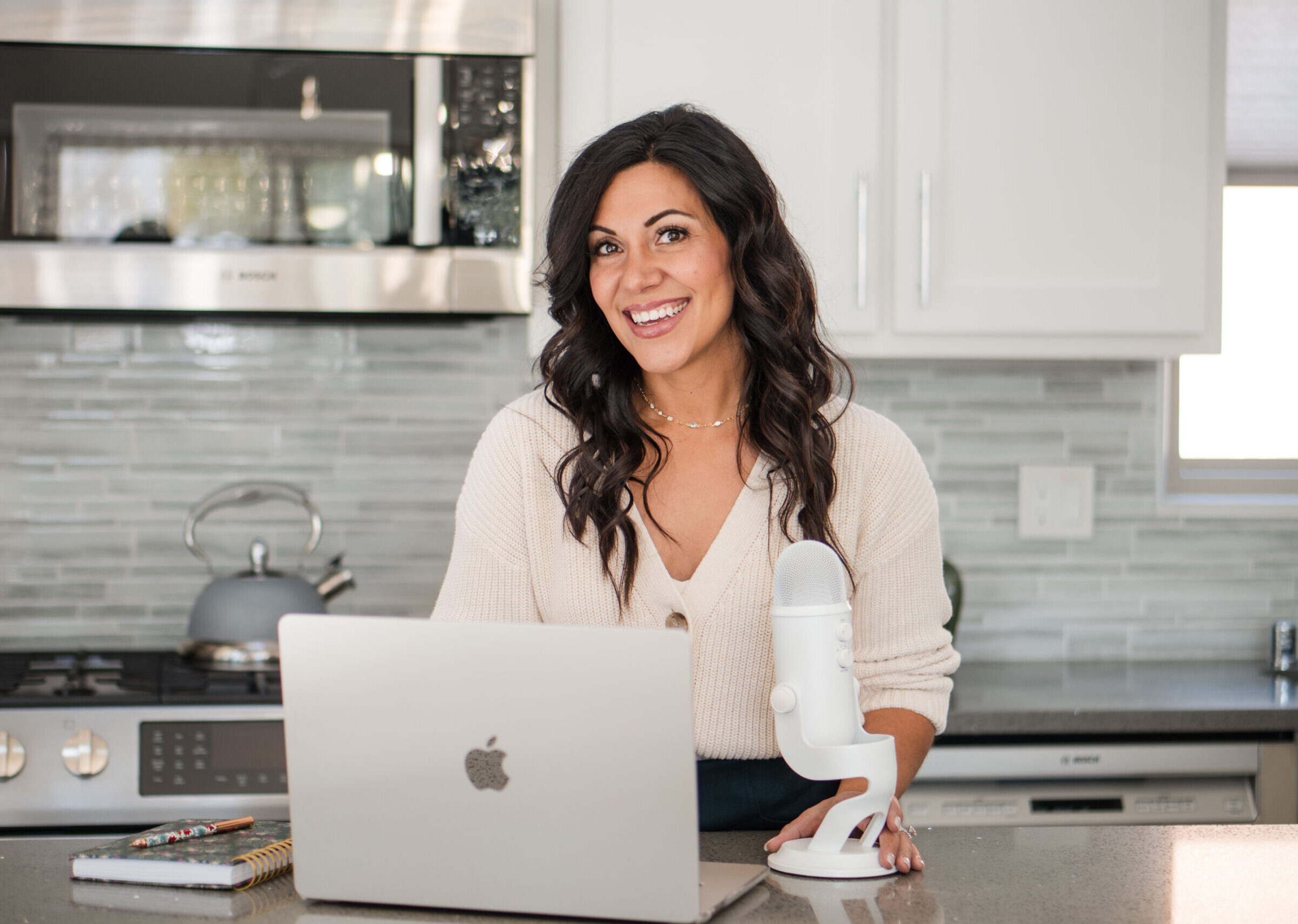
Have you ever wondered how much money a podcast with just a thousand downloads can make? It’s probably more than you think, but not in the method you think.

READ MORE
Join me as I coach my Podcast to Profit student on whether she should rebrand her podcast or stay true to what she already does so well.

READ MORE
As Christian entrepreneurs, we must pray to God and not run our businesses on our own. We must position God at the center of every decision.
Come Hang Out!
Learn How to Consistently
Make Income With a Podcast
For Faith-Led Entrepreneurs
Join 5-Day Profitable Podcast Bootcamp!
Podcast Launch Checklist
Steps to start and launch a podcast from start to finish
Should You
Start a Podcast?
TAKE THE QUIZ
AND FIND OUT
STEP BY STEP PLAN TO START YOUR ONLINE BUSINESS
Complete Business Blueprint
Is My Group Coaching Program Right For You?
Choose the option below that best describes you!
Have a question?
Ask Stef a question about her resources
or program!
Will podcasting make you money?
Play around with my Profitability Calculator!
Meet Podcast to Profit Alumni
Students and graduates who are profiting from their podcasts
from psalm chapter 18
Spiritual Battle Plan
defeat the enemy, strongholds and spiritual warfare
look around
© STEFANIE GASS LLC 2026 | ALL RIGHTS RESERVED | SITE CREDIT | LEGAL
Come Hang Out!
Come listen to a top 20 podcast for Christians who want to grow a simple, successful online business.
Come listen
to the go-to podcast
So glad you're here!
Visit the resources section and find out which software I personally use and recommend. Become an affiliate, or discover other trusted resources I have to help you succeed on your business and faith journey.
Check out all my recommended resources
including software, affiliates, and freebies.
Read the latest over on the Stef Gass Blog. Tons
of articles to help you succeed in life and business.
Meet Stefanie and learn more about her life, journey, failures and family. Plus, a glimpse of her amazing team.
Book Stef for in-person or virtual events! She will
inspire and educate your audience with her training.
Find out everything your need to feature Stef—bio, photos, and details—ready to inspire and educate your audience
Meet some of the students who are profiting from their podcast
Contact us with questions, concerns,
testimonies, or requests here.
I can't wait to help you get clarity on your calling, grow your business, launch a podcast, build a course, or scale and get visible. Check out the Stefanie Gass School. No more frustration or overwhelm. Just a simple, step-by-step framework to get you where you want to grow.
Get clear on your calling in 4 weeks or less so you
can start your online business with confidence.
Apply for my 6-month group coaching program for podcasters! Build your offer, learn to sell, and scale.
Visit the Stefanie Gass School to discover what step
you're on and and learn which course is right for you!
Launch a podcast in less than 30 days! 12 simple
steps to go from idea to successful podcast.
Let's work together!
WORK WITH ME
Clarify Your Calling
Free Workshop
Watch this workshop and get
clear on your calling so you can start
an online business! Hop on this quick,
35 minute free training and map out
your next steps!
Podcast for Growth
Free Workshop
Watch this workshop and learn how
podcasting works to make money online! Find out why podcasting is the best long-form content outlet and how it can drive more leads than social media.

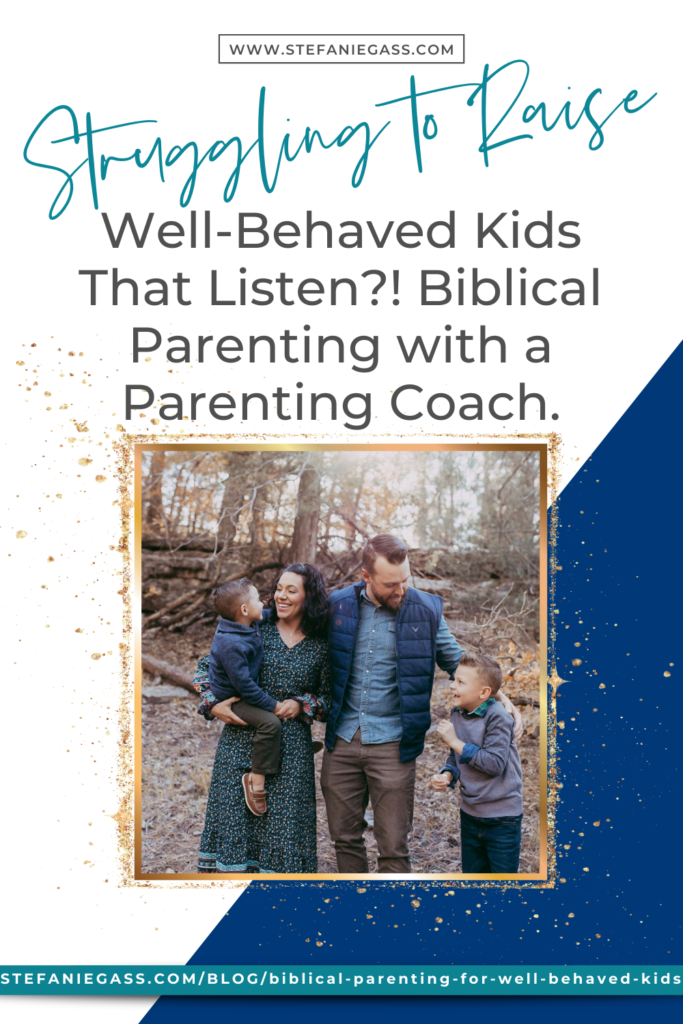
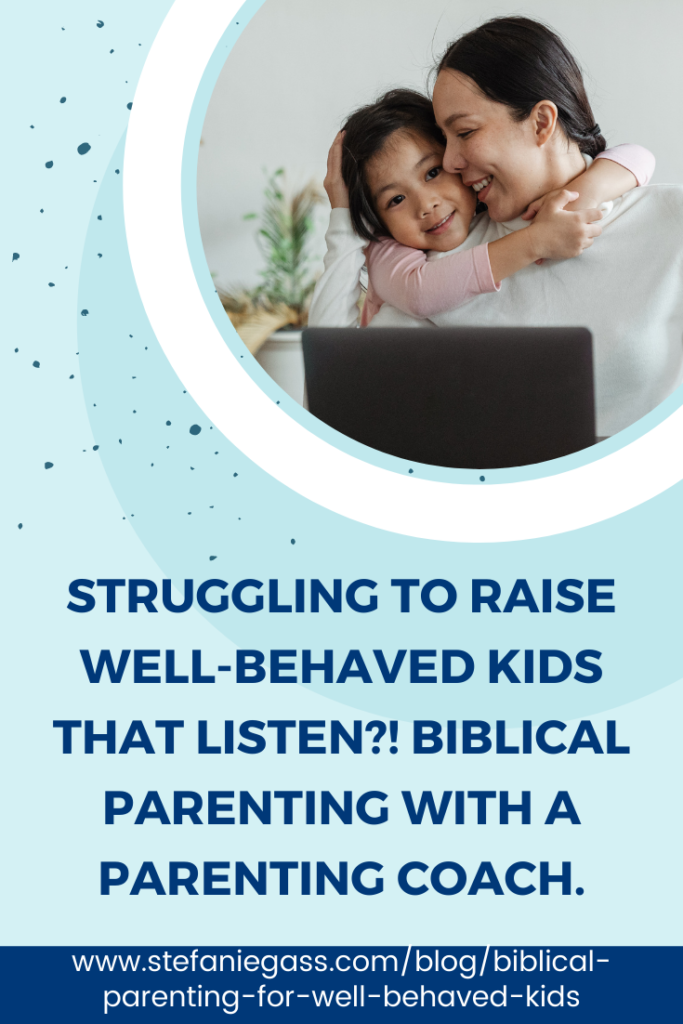
Leave Comment or Question Below